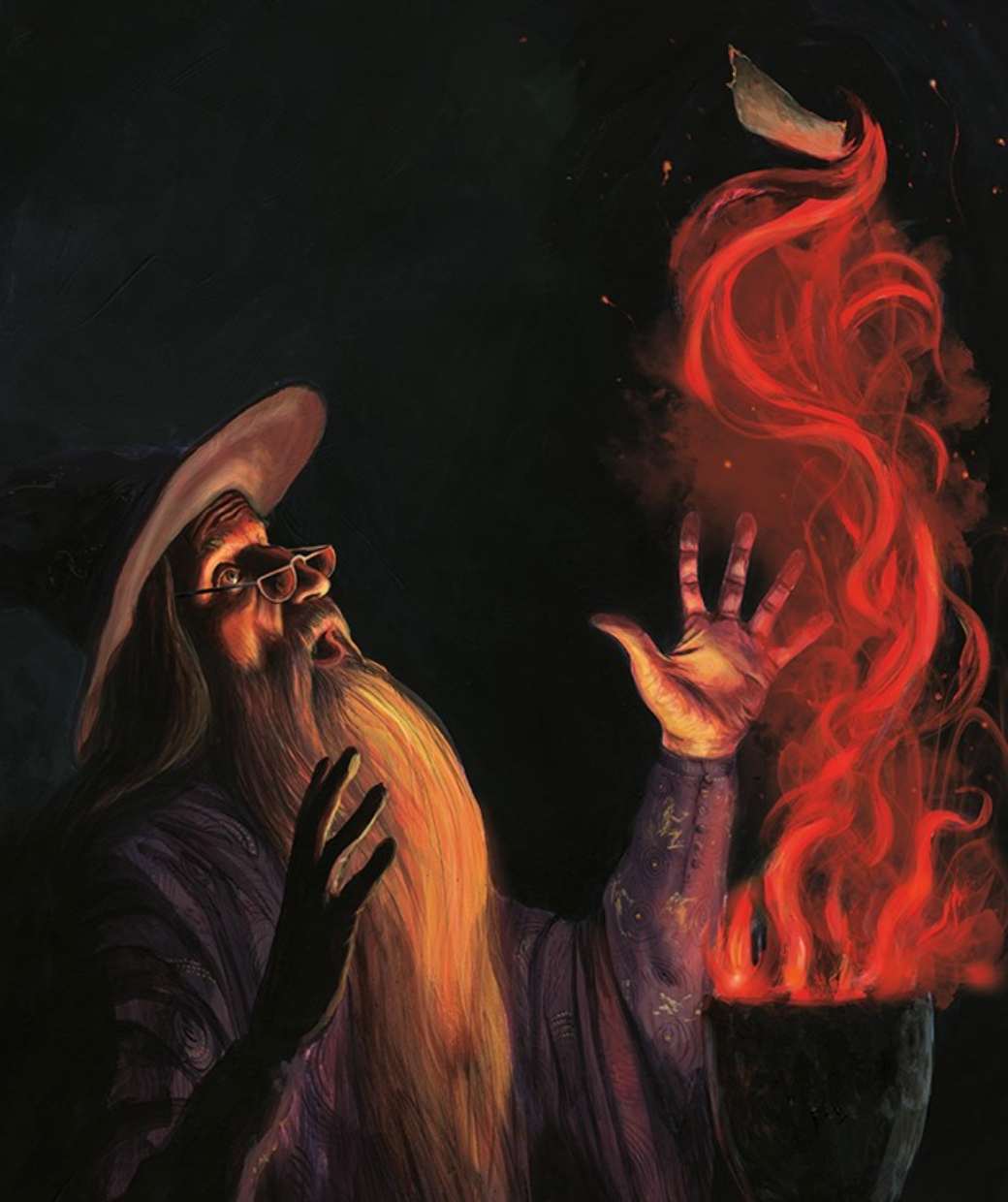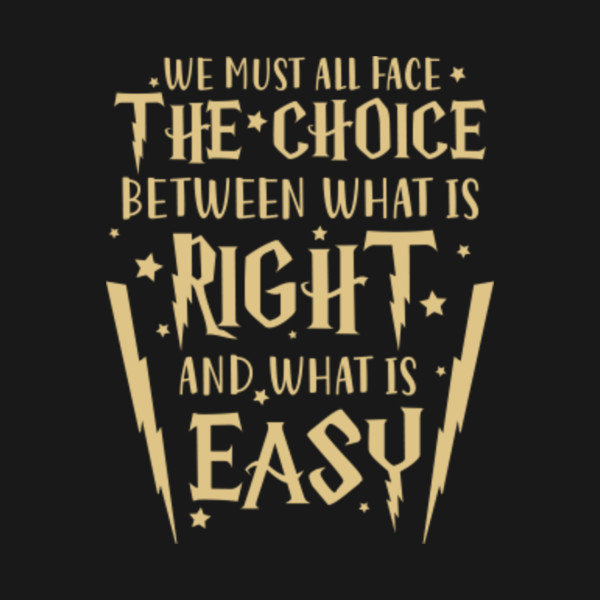
This is a quote from an easily quotable Harry Potter character, Professor Albus Dumbledore. Considered by many to be the greatest wizard of all time, we learn in book seven of the Harry Potter series, Harry Potter and the Deathly Hallows, that he has a bit of a dark side to him as well.
 (via Pottermore)
(via Pottermore)
Granted, we cannot take a WHOLE lot of the details printed in Rita Skeeter’s tell all book at face value (just because of who she is) but I cannot just ignore all that she has claimed, especially after getting Aberforth’s opinion shortly after.
I was particularly disturbed by his obsession and connection to the Deathly Hallows, and to Grindelwald.
However, the death of his sister at the hand of himself (and Grindelwald) seemed to alter the once seemingly arrogant, power hungry young man. He re-evaluated his morals and goals, and came to the conclusion that he must stick with the idea of “for the greater good.” The problem with this is that while it appears that Dumbledore has turned over a new leaf, he still is practicing problematic habits.
It is evident that Albus Dumbledore is a smart man. He can also be fairly manipulative, as seen in the original series and in the newest installment of the Fantastic Beasts movies. Dumbledore seems to always have a plan, and is constantly manipulating the people around him in order to see it out. Examples of this include his overall raising of Harry, his use of Snape’s love for Lily to turn him into a highly dangerous spy, convincing Harry at just the right moment to sacrifice himself to defeat Voldemort, and sending Newt to America without explaining why. Some of these manipulations eventually lead those people to their deaths (Snape and Harry). In particular, a lot of fans have major issues with Dumbledore willingly leaving Harry in the abusive care of his Aunt and Uncle.
Albus was also notorious for keeping his plans close to his chest. He kept virtually everyone around him in the dark about what he was doing, some for good reason, and others it seems unnecessarily. Some of the best examples of this are the distance he put between himself and Harry in Order of the Phoenix, his failure to explain the horocruxes to Harry despite the fact that he knew he was dying (and that time was running out), and the moment where Snape finds out the real reason for Harry’s protection – “I have spied for you and lied for you, put myself in mortal danger for you. Everything was supposed to be to keep Lily Potter’s son safe. Now you tell me you have been raising him like a pig for slaughter–”

So it’s true, Dumbledore appears to have been a master manipulator, a characteristic associated with most villains. However, the context in which he does it may give you pause. He has, throughout the series, been seen as a powerful leader. And this role often calls for extreme measures, “for the greater good.” Dumbledore took it upon himself to figure out how to defeat Voldemort, and make the necessary sacrifices. Of course it angers you to see a character carefully craft the raising of another, only to send him to his own death (and convince him it was his idea). But in reality, few would have been able to sacrifice the life one child in order to save millions of others. Voldemort inevitably created the catalyst of his own demise. Harry was essentially the wizarding world’s fail-safe, created by the monster himself, and Dumbledore was the only man smart enough to realize it. He made a decision to keep that information to himself because he knew what had to be done, and that few people would be able to “pull the trigger” when needed.
(via Mugglenet)
So where does that leave us? Dumbledore admits to Harry in Deathly Hallows (the King’s Cross scene) that power was his ultimate weakness. He feared that power would corrupt him beyond help, and that was why he was so drawn to Grindelwald at first. He saw him as a equal, as someone who thought the same way he did. And even though he eventually saw Grindelwald for what he really was, and tried to live a better life, Dumbledore was still always tempted by power. He admits that is why he turned down the Ministry position so many times, for fear that he could not be trusted with it. This thirst for power, paired with the master manipulation and “secret” plans, makes for a great villain. However, what makes Dumbledore an exception is his absolute dedication to “the greater good.” while his methods were questionable at some points, you have to admit that Albus Dumbledore was a brilliant man, and ultimately knew what he was doing. He was the epitome of greatness, in that he did whatever it took to ensure the safety of the many over the few.
(via Pottermore)

Say what you will about the man. Heck, at the start of this article, I was convinced he was a corrupt, overrated character, much like Severus Snape, but dare I say I may have been turned. You may not like his methods or his demons, but he got it done and if it weren’t for him pulling the strings and orchestrating this whole thing (even from death) Lord Voldemort may have won the war instead of the other way around.

What are your thoughts on this flawed character?
There were certainly times where that line between good and evil seemed to be getting thinner all the time. In the end, I would go to war with Dumbledore at my side, absolutely!
LikeLiked by 1 person
I completely agree! It was definitely sketchy at parts but in the grand scheme of things? He was still brilliant and I would absolutely want to be on his side of a war!
LikeLike
Really like that quote! And this is such a cool analysis!
LikeLiked by 1 person
Thank you! I worked really hard on this
LikeLike
Hello there! I could have sworn I’ve visited this blog before but after browsing through some of the articles I realized it’s new to me. Nonetheless, I’m definitely pleased I stumbled upon it and I’ll be bookmarking it and checking back often!
LikeLike